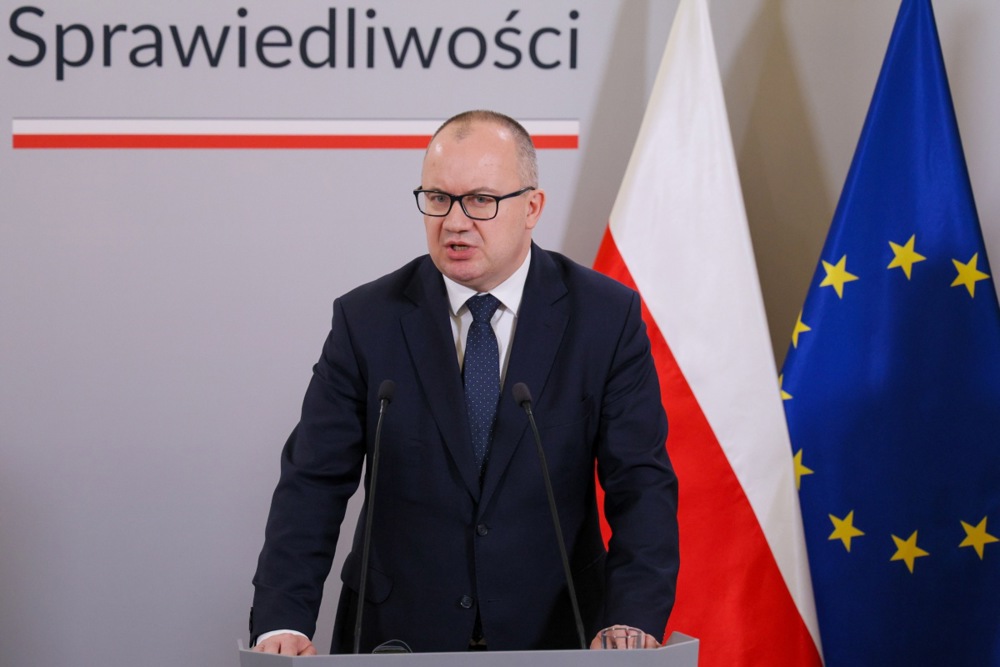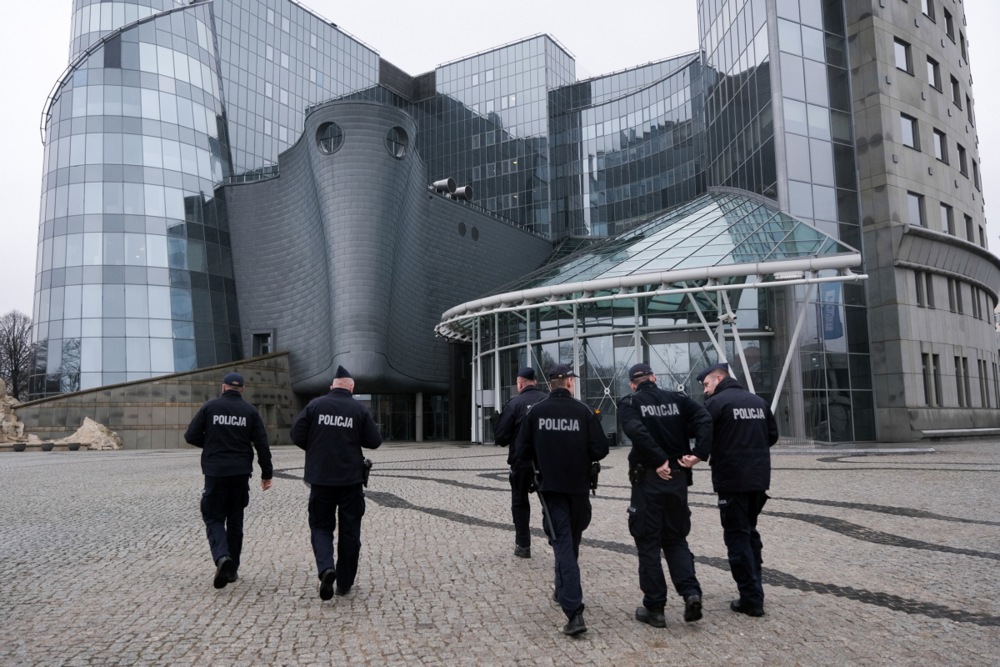The centre-left Polish Government led by Prime Minister Donald Tusk has been accused by the opposition Conservatives (PiS) of attempting to sell-off the assets of State railway haulage company PKP Cargo to the German rail firm Deutsche Bahn.
PKP Cargo offers logistics services, combining rail, road and sea transport, and operates in Poland, the Czech Republic, Slovakia, Germany, Austria, the Netherlands, Hungary, Lithuania and Slovenia.

The company is currently being restructured and is legally able to carry out both mass redundancies as well as sell its assets.
On July 24, PKP Cargo announced in a stock exchange communiqué that its management had decided to implement mass layoffs, affecting 4,142 staff representing 30 per cent of its workforce to improve the company’s liquidity and financial standing.
Its market share where it operates in rail transport has fallen from 50.4 per cent in 2012 to 33.1 per cent in 2023 and its profitability has halved from close to €40 million in 2022 to €20 million in 2023.
It had recorded a loss of more than €25 million for the first quarter of 2024, with operating revenues falling by almost €100 million when compared with the first quarter of 2023.
PKP Cargo has been criticised by the Union of Railway Engine Drivers for its decision to proceed with mass redundancies without a comprehensive recovery plan. The union claimed the company had unfairly targeted employees while retaining managers who were responsible for the firm’s failures, and not having any strategy for the future.
Kacper Płażyński MP (PiS) told Brussels Signal that PKP Cargo’s announcement it was in crisis before restructuring was a major mistake as, in doing so the company’s assets were bound to be undervalued and its markets share further reduced.
Other PiS MPs were also highly critical of the PKP Cargo situation and claimed it had come under threat from German rail operator Deutsche Bahn (DB). According to Adam Zieliński MP, there have been reports of German DB staff being present at PKP Cargo premises.
On X, he posted: “ATTENTION! Employees of Polish PKP Cargo are reporting that employees of the German Deutsche Bahn Cargo are showing up at PKP Cargo’s property, wanting to take photos and asking various questions. This could be the beginning of the takeover of our strategic company!”
PiS MP @TZielinski1967:
ATTENTION! Employees of Polish PKP Cargo are reporting that employees of the German Deutsche Bahn Cargo are showing up at PKP Cargo's property, wanting to take photos and asking various questions. This could be the beginning of the takeover of our… https://t.co/HA1Vpbqu0T— Law and Justice (@pisorgpl_EN) July 31, 2024
The company management has told Polish portal Money.pl that it had not invited any Germans to its premises and denied categorically that it was to be sold off, adding that it had forbidden the taking of any photographs at its sites by outsiders.
But PIS MEP Bogdan Rzońca said he feared that the Germans and Ukrainians were working together to take over the market share of the Polish rail company, even though according to Polish law they cannot buy the company outright.
PiS MEP @Bogdan_Rzonca:
❗️Let's connect the dots:
?️ 2020: "Ukrainian Railways and Deutsche Bahn signed a joint memorandum"
?️ 2022: "Ukrainian Railways' rail transport are transferred to ?? DB Management"
?️ 2024: "Ukrainian Railways registers a company in Poland and obtains a… https://t.co/rDQTPNrJRH— Law and Justice (@pisorgpl_EN) July 31, 2024
Kacper Płażyński MP (PiS) also told Brussels Signal: “DB are bound to be interested not only in the market share of PKP Cargo but also the rolling stock it could get at a knock-down price and in the staff trained at the Polish taxpayers’ expense who have been shed and who might now go and work for DB.”
The MP blamed the Tusk government for what he called the misconceived privatisation of PKP Cargo back in 2013, which “failed to identify strategic partners” and which allowed “profits and proceeds from asset sales to be transferred to the passenger carrier PKP SA” rather than using the proceeds “to invest in the company in the way DB and the French railway carrier have”.
According to Płażyński, the problem is that after eight years of PiS government, “the current Tusk administration is returning to the neoliberal policy of seeing only the bottom line rather than the broader picture”.
He argued that PKP Cargo was a company vital to Poland’s security because it could help the State move goods that may not be profitable to carry but which might be essential to be relocated at a time of need. He cited the coal crisis during the previous government’s tenure when the PiS had PKP Cargo transport the vital fuel all over the country.
“The [then-]Polish government was able to order PKP Cargo to do that. If the German DB or the Ukrainian State railways had been the dominant carriers on the market it would not have been able to do that, just as it would not be able to instruct them to help in a wartime situation”, he stated.
Płażyński said he believed the current management of PKP Cargo should have attempted to get compensation for the business their company lost during the coal crisis as a result of the services it had to undertake for the State rather than raising an alarm about the firm’s financial situation.
“Unlike the Tusk government, our PiS administration was prepared to come to the aid of strategic companies such as PKP Cargo,” he said.
The PiS has consistently opposed selling-off Polish State assets to foreign buyers and during its period of office actually brought back into public ownership a major bank – PKO SA – and PKP Energetyka, a company supplying energy for the railway network.





